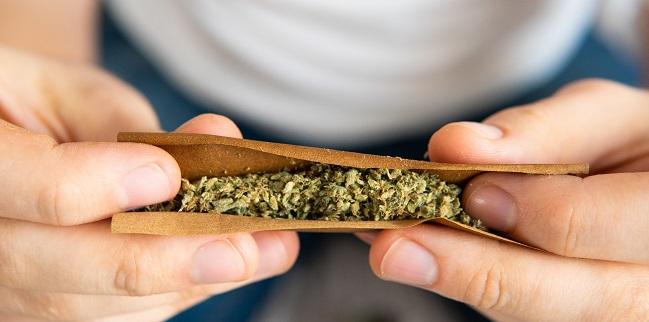Cannabis Abuse Linked to Periprocedural MIs After Elective Surgeries
Heavy marijuana users may warrant closer monitoring after these procedures, say the authors of a retrospective review.

Amid a rise in the recreational and medical use of cannabis, authors of a new report are warning that cannabis dependence or abuse is associated with a doubling of the risk of periprocedural MI across a range of elective surgeries.
In a retrospective cohort analysis published online ahead of print in Anesthesiology, Akash Goel, MD (Toronto General Hospital, Canada), and colleagues point out that cardiovascular and psychoactive effects of cannabis use have previously been reported. But, they say, whether there is any link between heavy cannabis use and perioperative MI is unclear.
“This adds to an existing body of literature that shows that there’s a relationship between cannabis use and cardiovascular outcomes,” senior author Karim Ladha, MD (University of Toronto, Canada), told TCTMD. “I think we all know and realize that the perioperative period is a time when the cardiovascular system is potentially placed under stress. This study serves [to remind us] that heavy cannabis use is another risk factor to consider when we’re risk-stratifying patients preoperatively, to be aware of it, and perhaps if patients have multiple risk factors to justify more intensive monitoring.”
For the study, Goel et al reviewed more than 4 million patient records collected in the US Nationwide Inpatient Sample between 2006 to 2015, looking at adults undergoing a variety of elective surgeries ranging from orthopedic to obstetric surgery, coronary artery bypass procedures, and beyond. Patient record checks included active cannabis use disorder based on ICD-9-CM codes for dependence or abuse. Patients whose records contained these codes were then propensity-score matched with patients whose records did not indicate any heavy marijuana usage.
Among the matched records there was no signal of increased events associated with an active cannabis disorder for the primary composite endpoint of in-hospital postoperative myocardial infarction, stroke, sepsis, deep vein thrombosis, pulmonary embolus, acute kidney injury requiring dialysis, respiratory failure, and in-hospital mortality after adjustment for other confounders including history of other substance use.
Viewed individually, none of the component endpoints were significantly different between the cannabis-disorder and no-disorder groups with the exception of myocardial infarction. Here, the odds of having a postoperative MI, after adjustment for other confounders, was nearly doubled in the active-cannabis-disorder patients as compared with controls (OR 1.88; 95% CI 1.31-2.69).
More Data Needed
There are a number of possible mechanisms that could explain a link between heavy marijuana consumption and perioperative MI, including effects on heart rate, blood pressure, and blood carboxyhemoglobin—the latter affecting oxygen-carrying capacity. Acute cannabis withdrawal may also have been a factor, Goel et al note.
Speaking with TCTMD, Ladha called any attempt to pinpoint a mechanism “pure speculation,” given the limitations of this kind of administrative data. “What this leads us to do are more studies to see if this effect exists when we collect data more granularly,” he explained.
The paper also points out that cannabis disorders among patients undergoing the range of elective surgeries included in this study are on the rise, increasing from 21.1 per 1,000,000 surgical admissions in 2006 to 71.0 per 1,000,000 surgical admissions in 2015.
That may in part reflect what Ladha called the shifting medical-legal landscape for cannabis. Medical or recreational use of marijuana is legal in 33 US states and the District of Columbia, the authors note, and as Ladha pointed out was legalized across Canada last year. The increasing usage may, in part, reflect the fact that patients are more comfortable discussing cannabis with their doctors.
“Our job right now as physicians is to respond to what our patients are doing when they’re not in our clinics and to make sure that they have the best possible outcomes,” Ladha said. “This paper by no means takes a stance on whether cannabis is good or bad; what it does is tell us is that we need to understand cannabis use and its implications for health. Often we think it’s simply benign, but . . . it’s important for us to do the research to learn more about it, because our patients are using it.”
Shelley Wood was the Editor-in-Chief of TCTMD and the Editorial Director at the Cardiovascular Research Foundation (CRF) from October 2015…
Read Full BioSources
Goel A, Jivraj NK, Wijeysundera DN, et al. Cannabis use disorder and perioperative outcomes in major elective surgeries: a retrospective cohort analysis. Anesthesiology. 2019;Epub ahead of print.
Disclosures
- Goel and Ladha report having no relevant conflicts of interest.


Comments